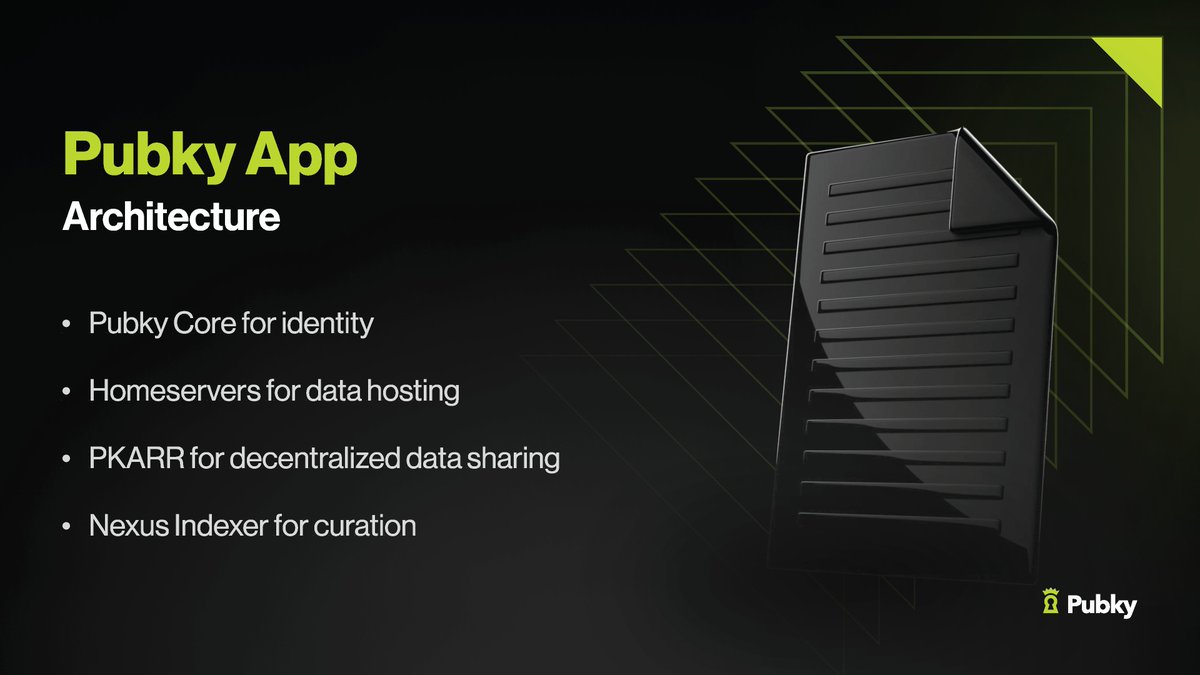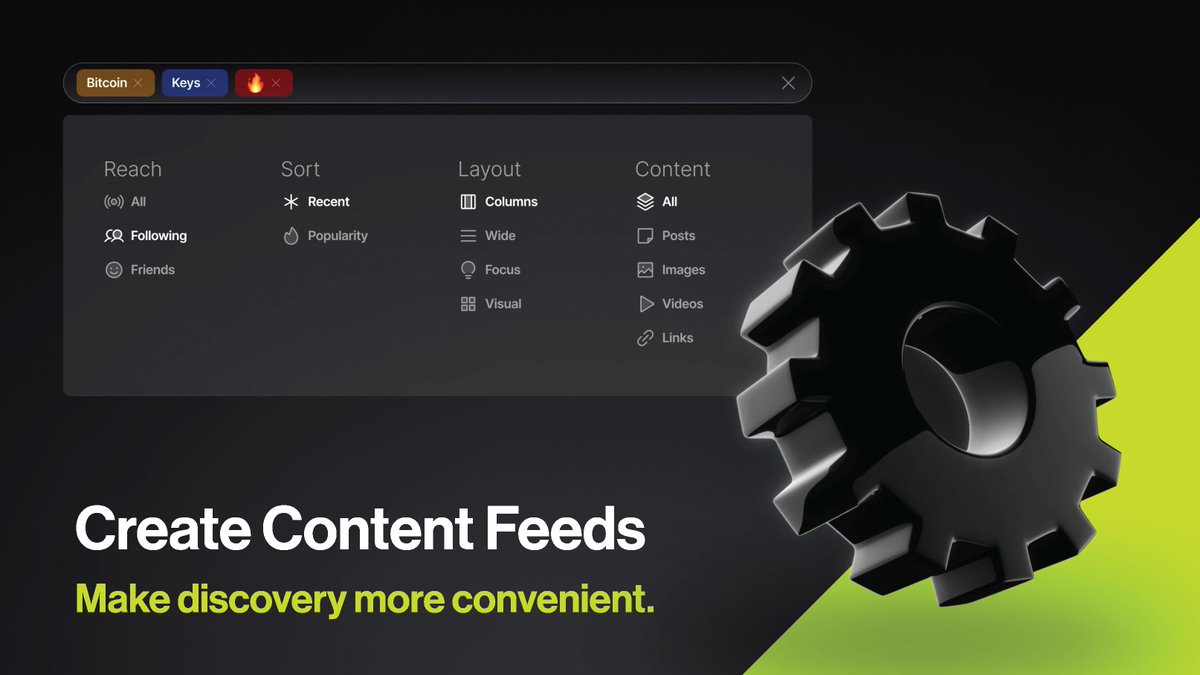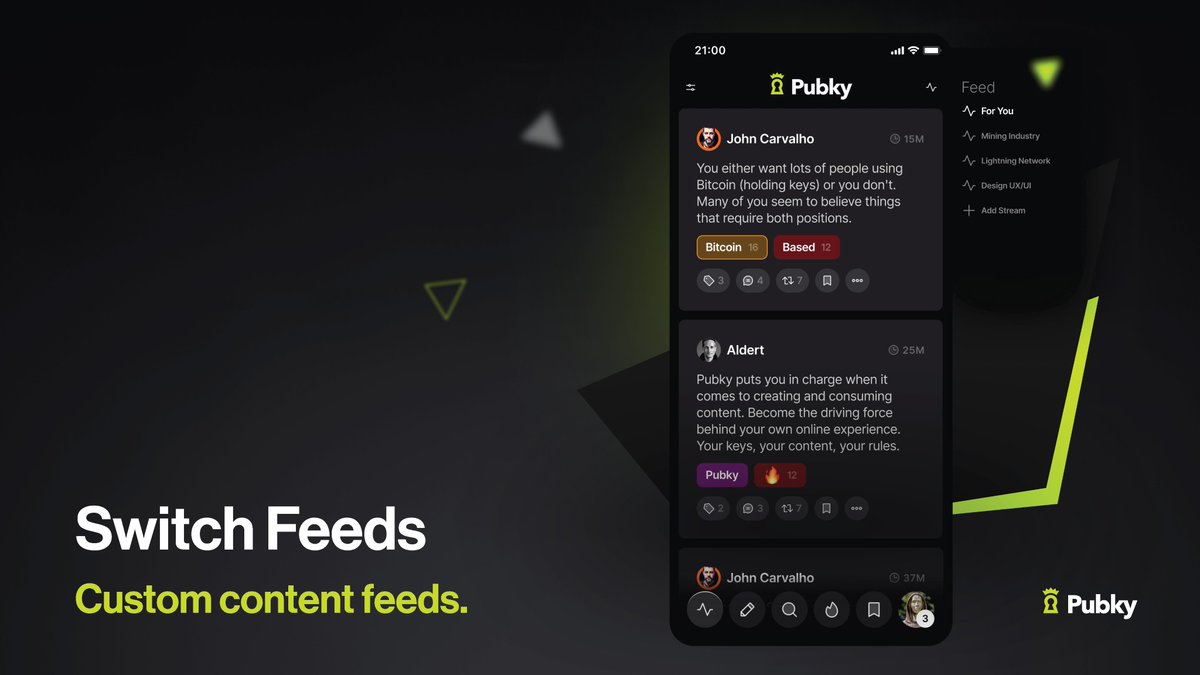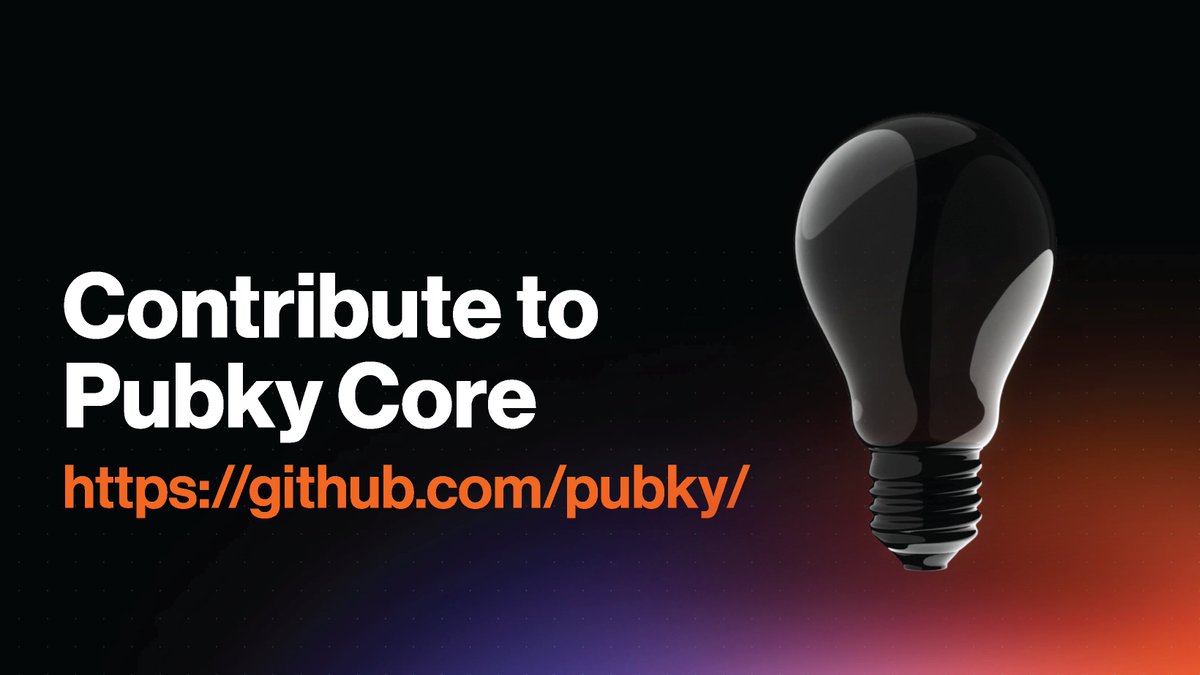A Progressive Web App
Runs in your browser or installed locally.
Content publishing, social tagging, semantic social graph — it’s all here.
Runs in your browser or installed locally.
Content publishing, social tagging, semantic social graph — it’s all here.

You Are The Key
Pubky App allows users to represent themselves as public keys. No email or phone number required.
Pubky App allows users to represent themselves as public keys. No email or phone number required.

Posts & Post Types
Posts aren’t just text. They are anything you might find in Google or other apps, except we can curate them together.
Notes, articles, images, files, videos, links, and more post types are coming.



Posts aren’t just text. They are anything you might find in Google or other apps, except we can curate them together.
Notes, articles, images, files, videos, links, and more post types are coming.
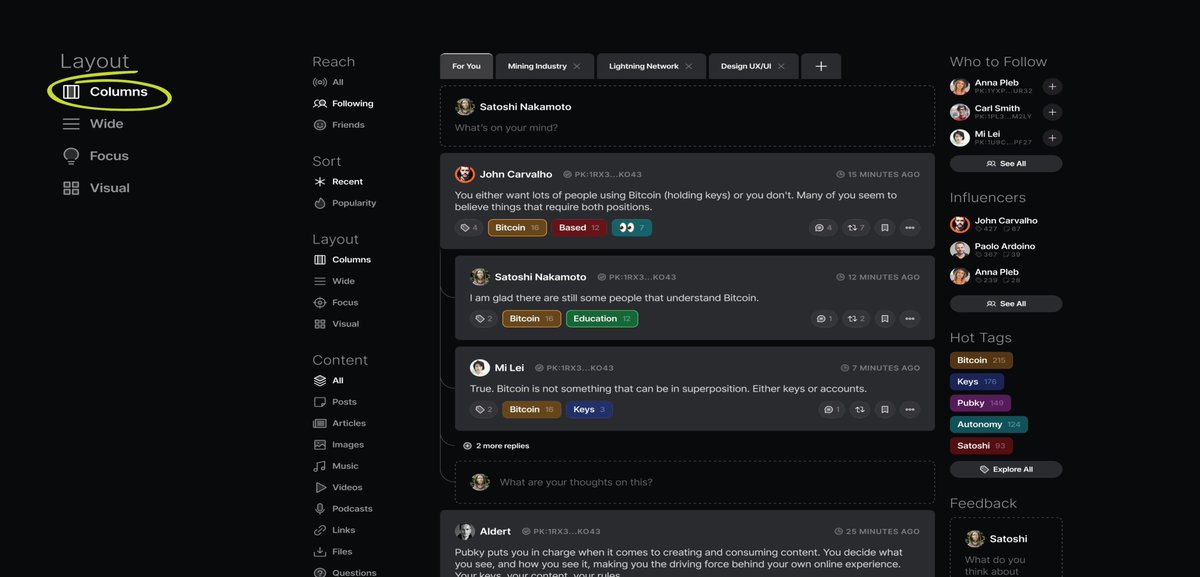
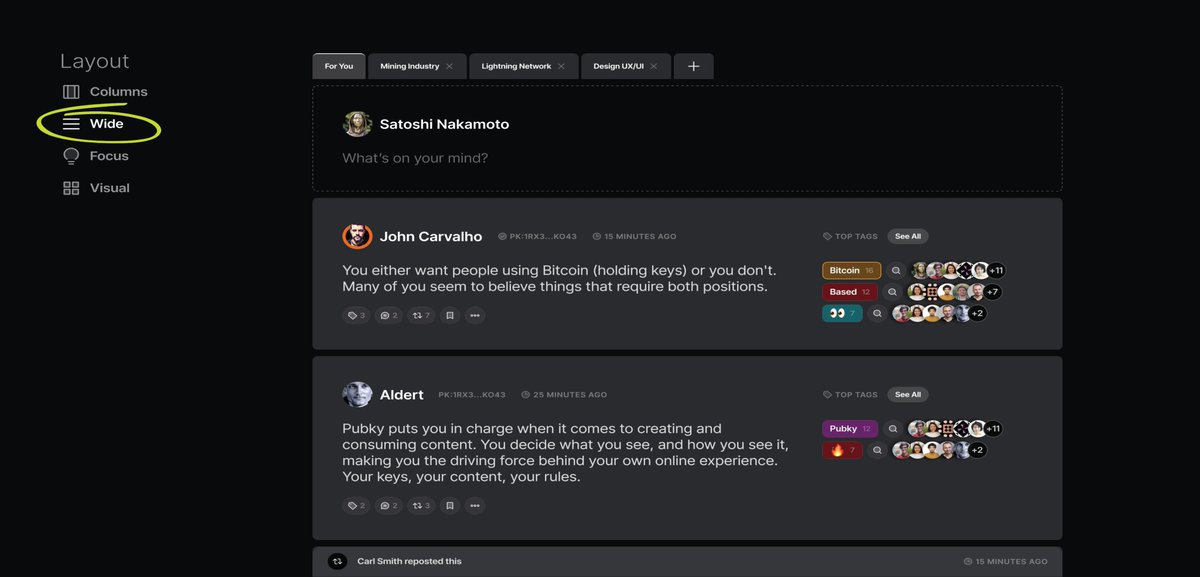
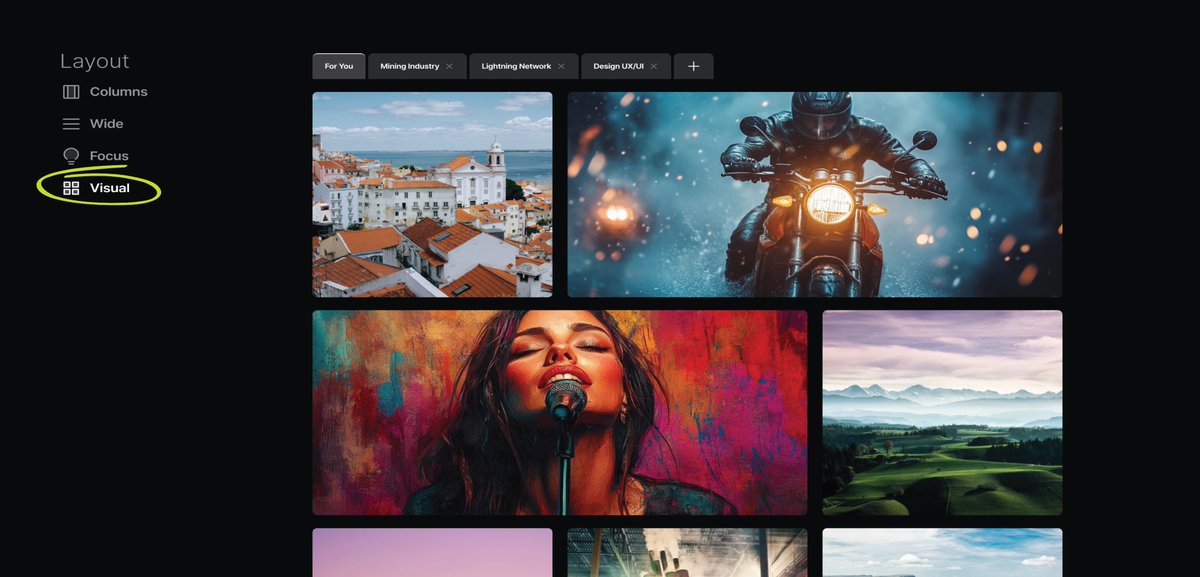
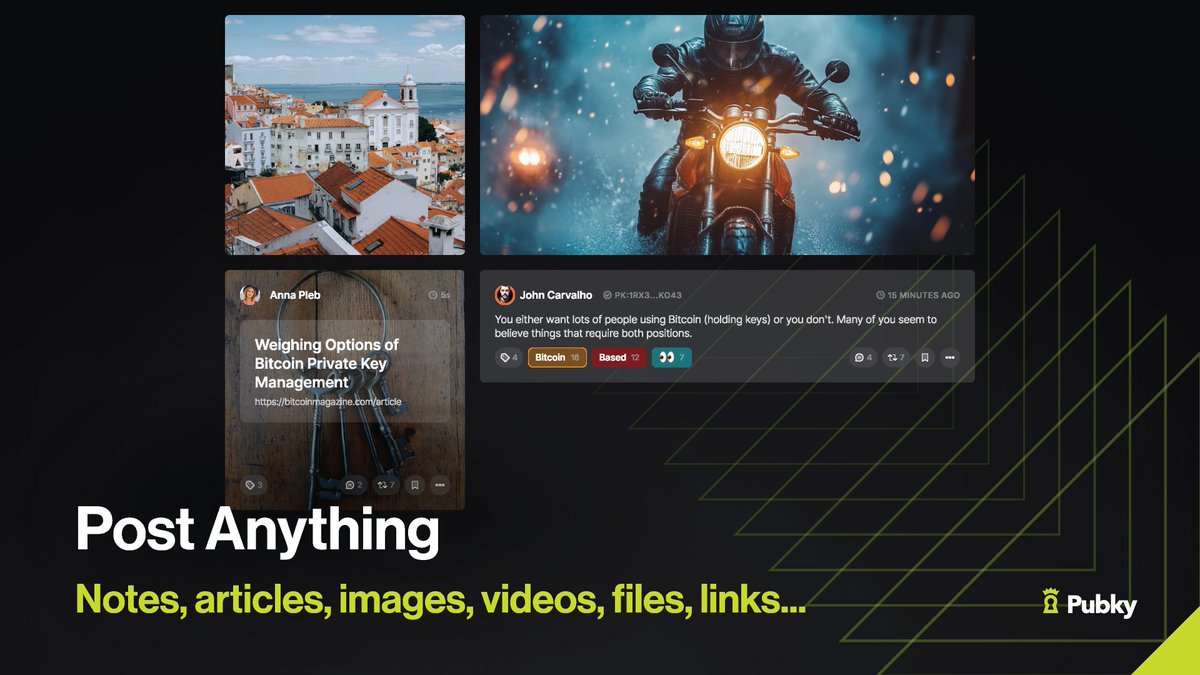
The Taggable Web
Forget the black-box algorithms. You create the network through Social Tagging, a new concept where you tag posts and users as you see fit, putting the algorithm in users' hands.
Forget the black-box algorithms. You create the network through Social Tagging, a new concept where you tag posts and users as you see fit, putting the algorithm in users' hands.
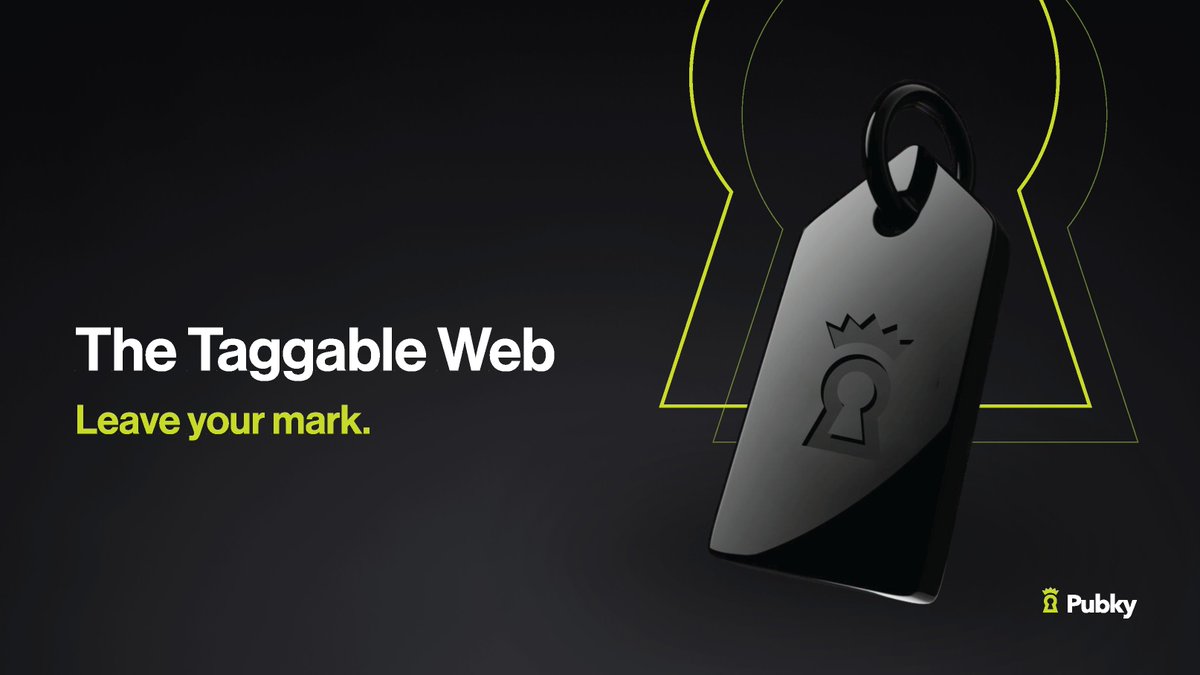
Tagging Posts
This isn’t just “likes” and “shares.” Tagging is about how you see the web, how you want others to see it. Social curation, the way it should be.
Create any custom tag as a button that others can add onto.
This isn’t just “likes” and “shares.” Tagging is about how you see the web, how you want others to see it. Social curation, the way it should be.
Create any custom tag as a button that others can add onto.
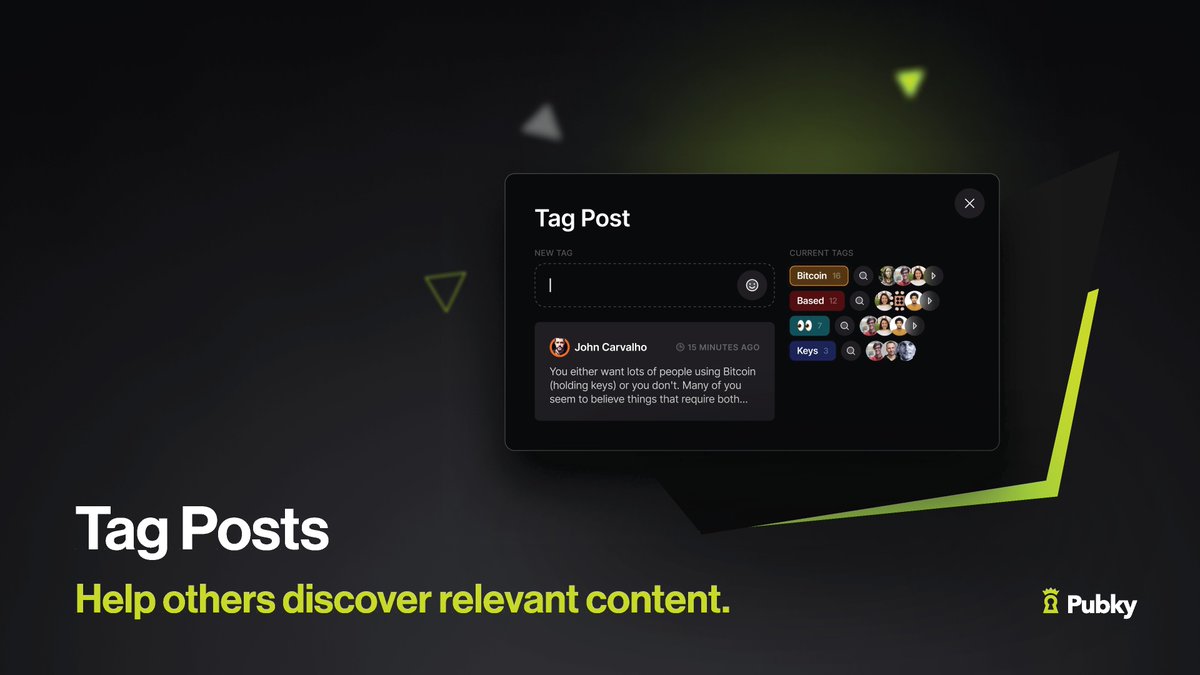
Tagging Users
Want to elevate someone’s voice? Tag them.
Pubky builds a web of trust, one tag at a time. Trust matters, and with Pubky, trust is transparent and sortable.
Want to elevate someone’s voice? Tag them.
Pubky builds a web of trust, one tag at a time. Trust matters, and with Pubky, trust is transparent and sortable.
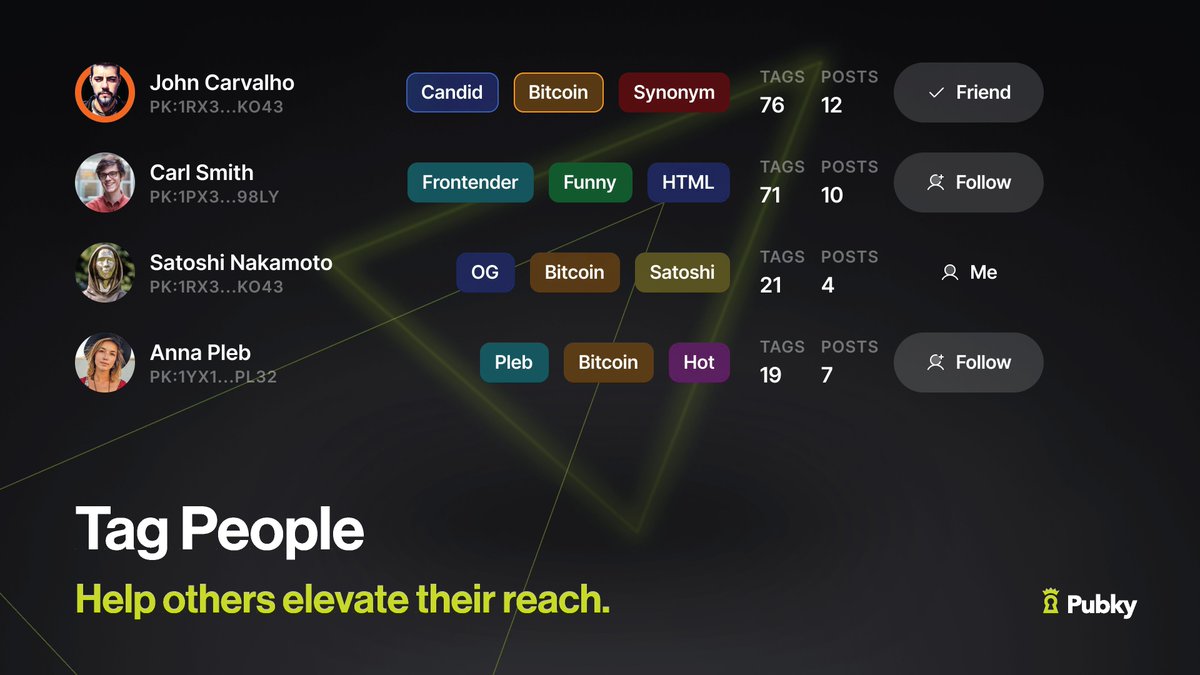
You Are the Algorithm
You choose your experience. Tagging builds your lens into the web, the one made by you and the people you trust.
You (we!) are the algorithm now.
You choose your experience. Tagging builds your lens into the web, the one made by you and the people you trust.
You (we!) are the algorithm now.
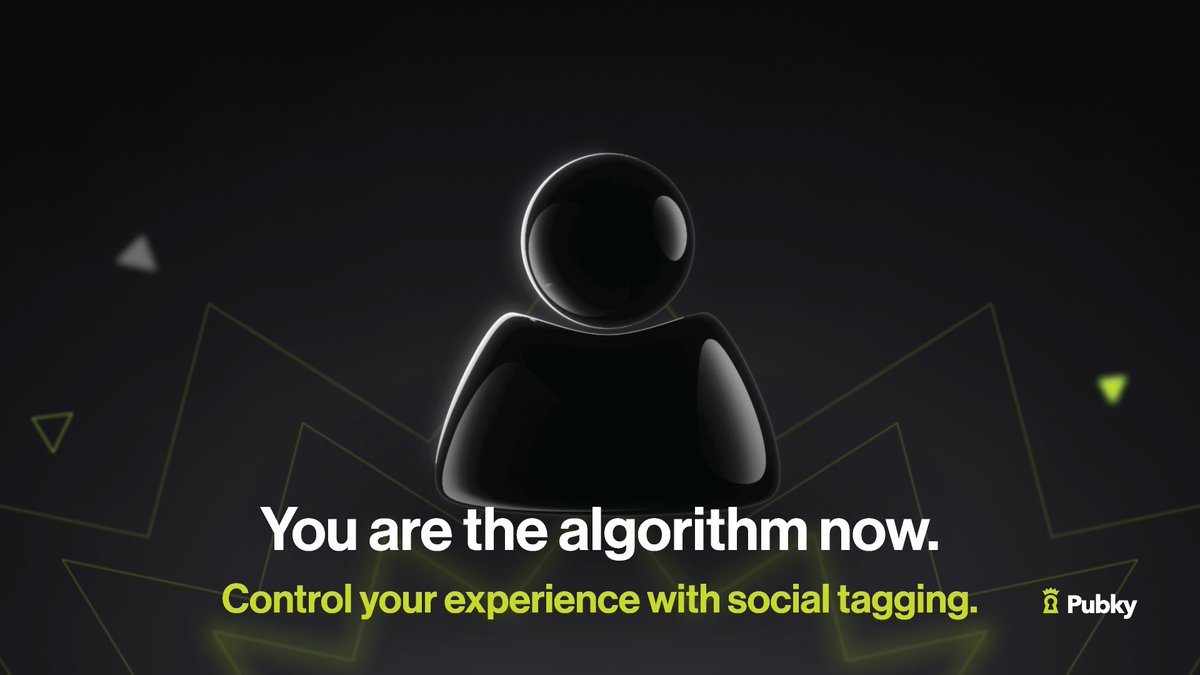
Poisoned Algorithms?
With Pubky, You Are the Algorithm. Social tagging and custom feeds give you control over what you see and how you see it.
With Pubky, You Are the Algorithm. Social tagging and custom feeds give you control over what you see and how you see it.

Censorship?
With PKARR identities, you can’t be censored in the traditional sense. Banned from a server? Keep your data, contacts, followers — and just keep going.
With PKARR identities, you can’t be censored in the traditional sense. Banned from a server? Keep your data, contacts, followers — and just keep going.

Walled Gardens? Nope.
Pubky’s about portability. Your identity, your social graph, your content. It’s all yours. No lock-in. Big Tech can keep their gardens.
Pubky’s about portability. Your identity, your social graph, your content. It’s all yours. No lock-in. Big Tech can keep their gardens.

Semantic Social Graph
Pubky isn’t just another feed — it’s a decentralized Semantic Social Graph. A network enriched by meaning.
Relationships are contextual and weighted by trust. It’s personalization that’s built from the ground up for real people, by real people.
Pubky isn’t just another feed — it’s a decentralized Semantic Social Graph. A network enriched by meaning.
Relationships are contextual and weighted by trust. It’s personalization that’s built from the ground up for real people, by real people.
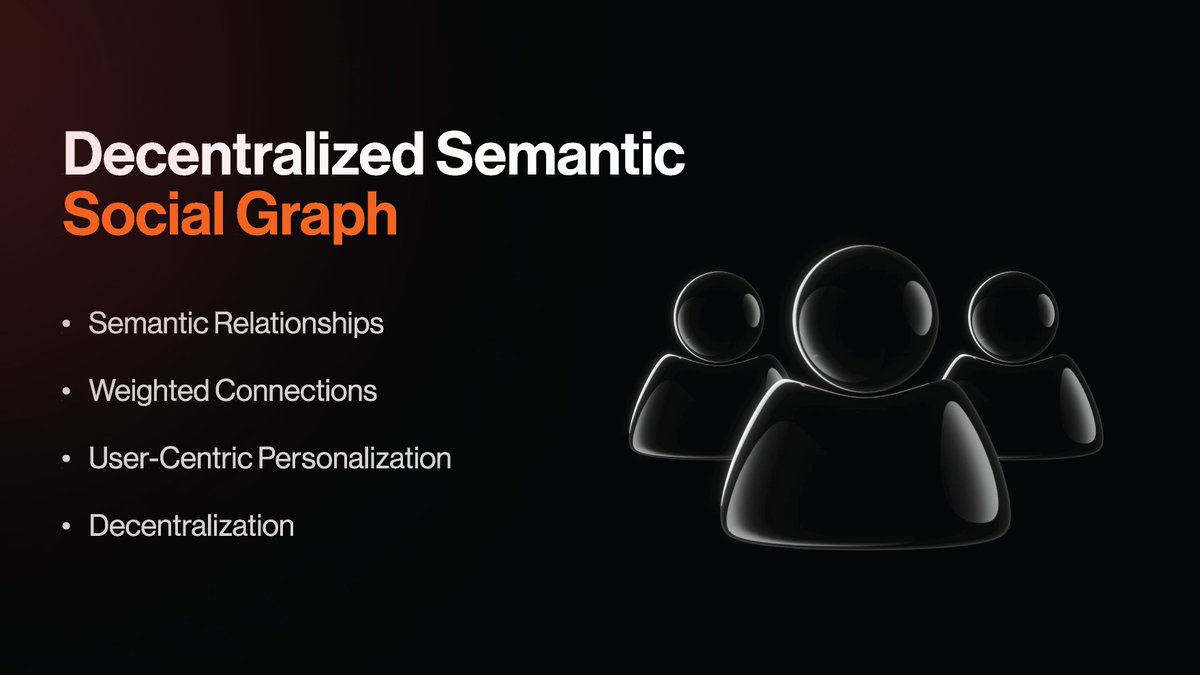
is almost ready!
We will begin a private, invite-only beta very soon, and a public beta in Q1 2025.Pubky.app
We will begin a private, invite-only beta very soon, and a public beta in Q1 2025.Pubky.app

• • •
Missing some Tweet in this thread? You can try to
force a refresh



